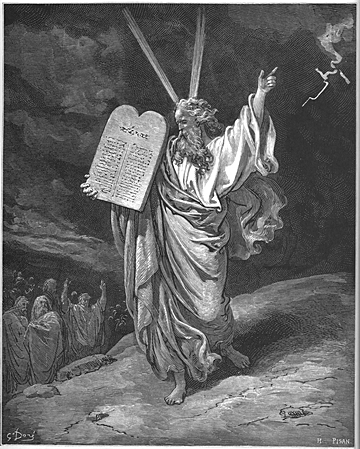コリント人への手紙第二 3
1 第二項 新約に於る使徒職 我等は又己を立てんとするか、将或人々の如く、汝等に對して、若くは汝等より、添書を要する者なるか、
Are we beginning to commend ourselves again? Or are we like some who need letters of commendation to you, or from you?
2 汝等こそ我等が心に録されたる我等の書簡にして、萬民に知られ且読まるるなれ。
You yourselves are our letter — a letter written on our hearts, and one which everybody can read and understand.
3 汝等は明に、我等に由りて認められたるキリストの書簡にして、而も墨を以てせず活給る神の霊を以てし、又石碑の上ならで心の肉碑の上に書きたるものなり。
All can see that you are a letter from Christ delivered by us, a letter written, not with ink, but with the Spirit of the Living God, not on ‘tablets of stone,’ but on ‘tablets of human hearts.’
4 我等キリストに由りて斯の如く神の御前に確信す、
This, then, is the confidence in regard to God that we have gained through the Christ.
5 是何事かを己より思ひ得るには非ず、我等の得るは神によれり。
I do not mean that we are fit to form any judgment by ourselves, as if on our own authority;
6 即ち神は我等を新約の相當なる役者とならしめ給へり、其は儀文の役者に非ず霊の役者なり、蓋儀文は殺し霊は活かし給ふ。
our fitness comes from God, who himself made us fit to be ministers of a New Covenant, of which the substance is, not a written Law, but a Spirit. For the written Law means Death, but the Spirit gives Life.
7 イスラエルの子等、モイゼの顔の終ある光榮の為に、其顔を熟視め得ざりし程に、死の役すら文字にて石に刻銘けられ、光榮の中に在りたれば、
If the system of religion which involved Death, embodied in a written Law and engraved on stones, began amid such glory, that the Israelites were unable to gaze at the face of Moses on account of its glory, though it was but a passing glory,
8 霊の役は豈一層光榮あらざらんや。
will not the religion that confers the Spirit have still greater glory?
9 蓋罪に定むる役は光榮なれば、况や義に定むる役は尚豊に光榮あるべきをや。
For, if there was a glory in the religion that involved condemnation, far greater is the glory of the religion that confers righteousness!
10 彼時に輝きしは、勝れたる光榮に對しては光榮ならず、
Indeed, that which then had glory has lost its glory, because of the glory which surpasses it.
11 蓋終るべきものすら光榮を以て成りたれば、况や永存すべきものは増りて光榮あるべきをや。
And, if that which was to pass away was attended with glory, far more will that which is to endure be surrounded with glory!
12 然れば我等は斯る希望を懐ける上に、憚らず言ひて、
With such a hope as this, we speak with all plainness;
13 モイゼの如くには為ざるなり。彼は終るべき其役の終をイスラエルの子等に見せざらん為、己が顔に覆を置きたり。
unlike Moses, who covered his face with a veil, to prevent the Israelites from gazing at the disappearance of what was passing away.
14 斯て彼等の精神鈍りて、今日に至るまで、舊約を読むに其覆は依然として取除かれず。蓋舊約はキリストに於て終るものなれども、
But their minds were slow to learn. Indeed, to this very day, at the public reading of the Old Covenant, the same veil remains unlifted; only for those who are in union with Christ does it pass away.
15 今日に至るまでモイゼの書を読む時に、覆は彼等の心の上に置かれたり。
But, even to this day, whenever Moses is read, a veil lies on their hearts.
16 然れど主に立歸らん時、其覆は取除かるべし。
‘Yet, whenever a man turns to the Lord, the veil is removed.’
17 然て主は彼霊なり、主の霊ある處には自由あり、
And the ‘Lord’ is the Spirit, and, where the Spirit of the Lord is, there is freedom.
18 我等は皆素顔にて主の光榮を鏡に映すが如く見奉りて、光榮より光榮に進み、主と同じ像に化す、是主の霊に由りてなるが如し。
And all of us, with faces from which the veil is lifted, seeing, as if reflected in a mirror, the glory of the Lord, are being transformed into his likeness, from glory to glory, as it is given by the Lord, the Spirit.





















